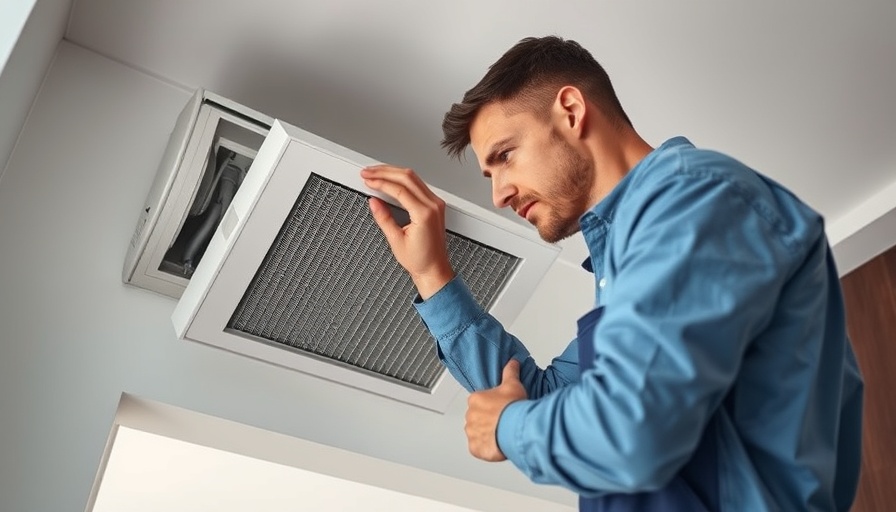
Unmasking the Hidden Culprits of Indoor Air Quality
When it comes to indoor air quality (IAQ), many homeowners focus on the usual suspects: molds, dust, and pollen. Yet, there’s a hidden realm of contaminants often overlooked that could be impacting your health more than you realize. As we spend about 90% of our time indoors, clearing the air means navigating through various less obvious culprits.
The Dangers of VOCs: Not Just a Faint Smell
Volatile organic compounds (VOCs) are known for lurking in everyday household products, from cleaners to air fresheners. These invisible offenders can contribute significantly to poor indoor air quality. Studies have shown that long-term exposure to VOCs can lead to serious health issues ranging from headaches to more severe respiratory problems. Understanding your home’s VOC levels and opting for low-VOC or VOC-free products can better shield your family from exposure.
Why Humidity Matters: The Balance of Comfort and Health
Humidity might seem like a trivial factor, but it plays a vital role in maintaining IAQ. Too much moisture can create a breeding ground for mold, while too little can dry out your respiratory pathways, making you more susceptible to illness. Ideal humidity levels should hover around 30-50%. Utilizing dehumidifiers or humidifiers can maintain this balance and help alleviate health problems associated with both extremes.
Breathe Easy: Innovative Air Filtration Systems
As homeowners become increasingly aware of air quality, advances in air filtration systems offer promising solutions. HEPA filters, for example, can trap airborne particles, while UV light air purifiers eliminate bacteria and viruses. Integrating these systems into your HVAC can truly transform your home environment, ensuring cleaner air, reducing allergy triggers, and promoting overall wellness.
Recognizing HVAC Systems' Role in IAQ
Your HVAC system does more than just heat and cool your home; it actively influences indoor air quality. Regular maintenance, including changing filters and cleaning ducts, is essential. Neglected systems can accumulate dust and allergens that release back into the air every time the system kicks on. Keeping up with HVAC maintenance can significantly enhance your indoor environment and safeguard your family’s health.
Taking Action: The First Step to Cleaner Air
The journey to better indoor air quality starts with awareness. Monitor your home for hidden IAQ threats and take proactive measures, whether it’s reducing VOC sources, controlling humidity, investing in air filtration, or maintaining your HVAC system. Each step taken ensures a healthier living space for you and your loved ones.
 Add Row
Add Row  Add
Add 




Write A Comment